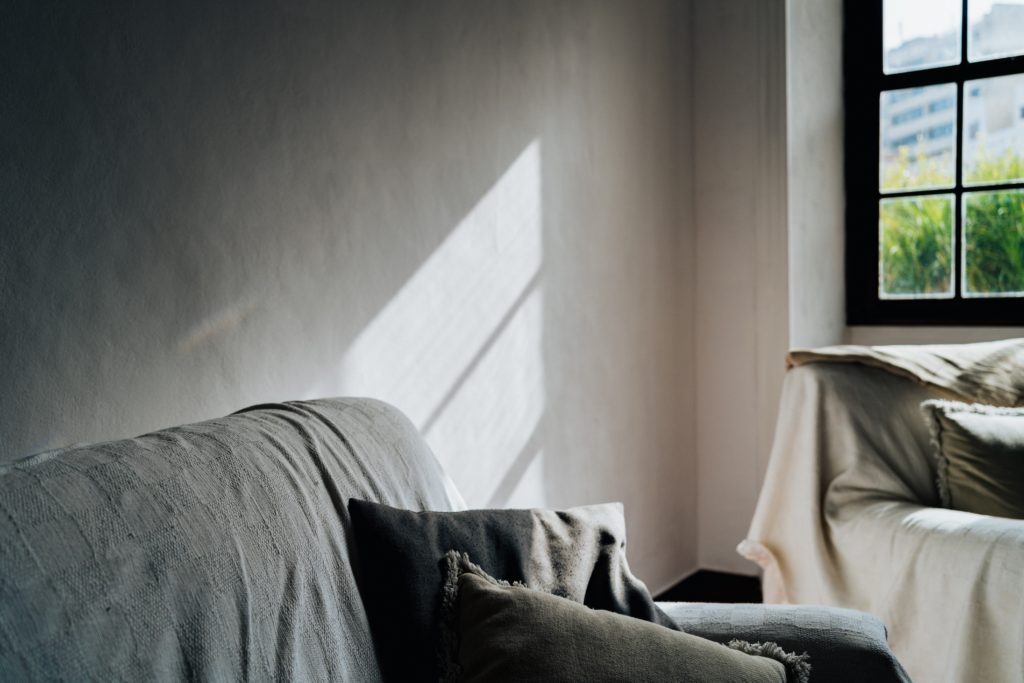Most of us do a lot to make sure that our skin looks and feels great in the morning. If your bathroom counter is cluttered with tons of different skincare products, beauty brands and foundations, then you’re not alone. But, what if one of the biggest secrets to better skin was simpler and much cheaper than all of that? As it turns out, there’s quite a lot of research behind the concept of ‘beauty sleep’. After all, when you sleep is when some of the most important epidermal recoveries take place. And while you shouldn’t completely abandon your daily skincare routine to get some more sleep instead, there are some easy ways to improve your skin-sleep relationship and get better results in the morning.
How Sleep Impacts Your Skin
When you have a bad night’s sleep, you can almost immediately see the effect that it has on your skin. Usually, if you wake up with swollen eyes, hanging eyelids, dark circles under your eyes, paler skin, droopy corners of your mouth, and more wrinkles and fine lines, it’s a dead giveaway that you haven’t had a great night of beauty sleep. So, what exactly does sleep do to your skin?
Sleep is the time where your body is able to repair itself. This is as true for your skin as it is for your muscles and brain. When you’re sleeping, the blood flow to your skin increases, allowing your largest organ to rebuild its collagen and repair damage from UV exposure, which helps to reduce age spots and wrinkles. However, sleep is also a time when your skin will inevitably come into contact with the elements around it for a long time – so using the wrong bedding materials could also do a number on your skin, no matter how much sleep you get.
Get a Full Night of Sleep
One of the best things that you can do for your skin – and indeed, your health overall – is to get the recommended amount of sleep every night. Poor sleep can seriously affect your skin, causing it to age faster and making it more difficult to recover from environmental stressors like sun exposure. Aim for an average of 7-9 hours of sleep every night. If you struggle to get to sleep or wake up frequently during the night, a new mattress could help. Select a mattress that’s designed to support the way that you sleep most comfortably – there are some good options for back sleepers here.
Wash Your Face Before Going to Bed
Getting a good night’s sleep is a great way to help your skin repair itself. It allows the muscles in your face to relax after a long day and collagen to rebuild itself, and increases blood flow to the skin. But if you’re going to bed with a dirty face, you won’t get the full benefit. In fact, cleansing your face at night is more important than doing it in the morning. You don’t need to use a lot of expensive products or even scrub your face; just use a gentle cleanser to make sure that any makeup, extra oil, and dirt is cleaned away.
Keep Your Skin Hydrated at Night
Washing your face before bed is important, but it can also dry your skin out. And sleeping can have a dehydrating impact on your skin, particularly if your bedroom is a low-humidity environment. So, make sure that you counteract these effects by keeping your skin hydrated. Drinking plenty of water through the day can help, but what you really need to do for your skin is to apply a good moisturizer before you go to bed. This doesn’t have to be expensive; a thick cream or oil that’s designed to penetrate your skin and hydrate it while you sleep will do the trick well. You might also want to consider using a daytime moisturizer and then apply petroleum jelly over the top to help lock in the moisture. If you have oily skin check out civilizedhealth review on night moisturizers for oily skin.

Use the Right Pillowcase
You spend one-third of your day sleeping, so it makes sense to practice the best sleeping positions that, since that position your face is in while you sleep will have an impact on your skin. If you sleep on your face or on your side, having your face against a rough cotton surface can compress your face for long hours at a time and cause irritation to your skin. And, wrinkles on your face or chest can occur from sleeping on your stomach or side. Switching to sleeping on your back, if you are comfortable with it, is a simple solution to this. But if you sleep easier on your front or side, make sure to use a skin-friendly pillowcase. Satin or silk are great materials since they help to reduce skin compression and irritation.
Keep Your Head Elevated
Raising your head while you sleep can help with a multitude of things. It has been proven to help with sleep problems like nasal dripping, acid reflux, and even snoring, all of which can reduce sleep quality and therefore have an effect on your skin. And, raising your head while you sleep can help to improve blood flow to your skin and prevent blood from pooling, which can in turn help to reduce dark circles and bags under your eyes when you wake up. And, it’s easy enough to do; you can elevate your head while you sleep by adding an extra pillow or adding a wedge to your mattress.
Stay Out of the Sun
Although we do most of our sleeping in the dark, sleeping with your skin directly exposed to the sun, either during naps or in the morning, can damage your skin’s health and appearance. And, sleeping in a lighted room can disturb your sleep pattern and make it harder for you to get to sleep or wake up at a suitable time in the morning. The good news is that blackout curtains are a simple solution to this; if you find that you are not getting enough sleep because you wake up with the sun as soon as it rises and shines into your room, hanging blackout curtains in your windows will block the light and make it easier for you to get your full 7-9 hours of sleep every night while keeping your skin from being harmed by exposure to the sun as you snooze.
Create a Relaxing Bedroom Environment
Finally, creating a relaxing bedroom environment will make all the other steps to healthy sleep and better skin more achievable. Along with upgrading your mattress and bedding if needed in order to support better skin repair and regeneration overnight, there are several further things that you can do to make your bedroom more relaxing. Keep electronics out of the bedroom before bed, and utilize smart storage spaces like under bed storage to keep clutter at bay. Another great way to keep your bedroom nice and relaxing is the scent; lavender candles or a lavender room spray will help your bedroom smell more tranquil and make it easier for you to drift off into a deep, relaxing sleep every night.
While beauty products and skincare have their place in helping you look and feel great, there’s nothing quite like high-quality sleep for improving skin health and appearance.

